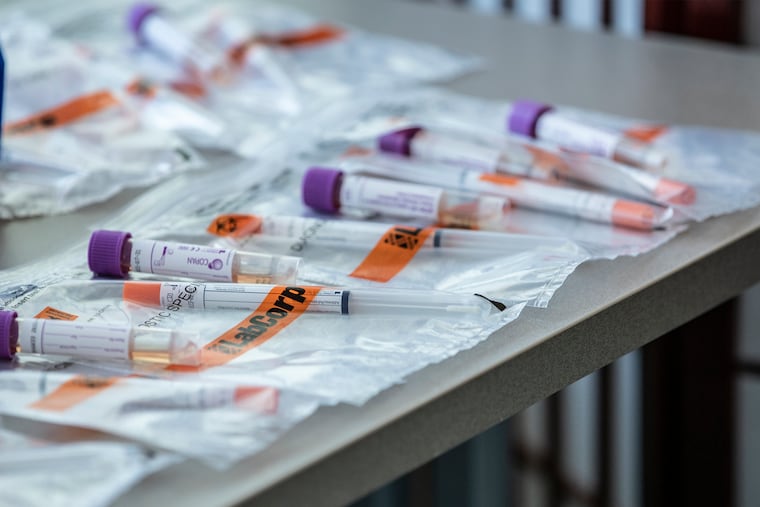Pennsylvania to pay CVS to test nursing home residents and staff for coronavirus
Pennsylvania will pay CVS Health up to $9.5 million to test 50,000 residents and staff members of the state’s 693 nursing homes for the coronavirus.

The Pennsylvania Department of Health announced this week that it will pay CVS Health up to $9.5 million to test 50,000 residents and staff members of the state’s 693 nursing homes for the coronavirus.
That’s about a quarter of the 80,000 residents and 115,000 staff the state says are in nursing homes.
On June 9, state Health Secretary Rachel Levine ordered nursing homes to test all residents and staff by July 24. As of Thursday, 175 had conducted baseline testing, according to Nate Wardle, spokesperson for the department.
Testing is important in such facilities because the new virus has been particularly deadly for their residents. Death rates rise with age and underlying medical problems. About 68% of the state’s 6,557 deaths have been associated with long-term-care facilities. Because many people who are infected with the virus and capable of spreading it have no symptoms, testing is needed to know which residents and staff to quarantine.
Funding for the new partnership comes from the U.S. Centers for Disease Control and Prevention.
Zach Shamberg, president and CEO of the Pennsylvania Health Care Association (PHCA), which represents long-term-care providers, said in a statement that he was “encouraged by this initial step.” He said that some nursing homes are still having trouble procuring testing supplies and that insurers have been reluctant to cover testing for staff members without symptoms. Medical directors have “liability concerns” about ordering tests for asymptomatic residents.
At a hearing of the Pennsylvania Senate Aging and Youth Committee on Thursday, Shamberg criticized the state for changing its stance on testing in nursing homes repeatedly over the last two months.
The new testing program will be undertaken by Omnicare, a CVS Health company, which will administer the tests. The state expects a turnaround time of 72 hours, Wardle said.
The department will have a three-tiered priority list, starting with facilities that have new or ongoing outbreaks, proceeding to those that have had outbreaks in the past, and finally going to places that have had no cases.
Shayna Varner, director of communications for PHCA, said a member in the top tier was told the earliest their nursing home could receive testing was July 11, two weeks before the deadline.
“Based on this information, we have encouraged our members who have not yet received a call and are likely in phase two or three to continue working to procure their own testing,” she said.
Many members are self-insured and pay for staff testing themselves, Varner said. Tests cost $100 to $150.
Wardle said the Health Department is “committed to assisting facilities to ensure they can meet the July 24 deadline of conducting baseline universal testing. Many of these facilities have existing relationships that they can leverage for this.”